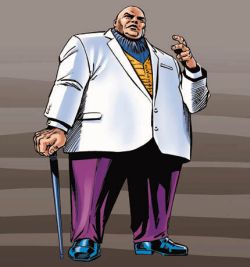GMT's Combat Commander: Europe presents a handsome package. Nice cards, clean counters, good play aids, readable rules (though the rules aren't great for reference), and I really like the big hexes. After reading the rules a couple times I expected the worst of two worlds -- the tedium of ASL with the randomness of Up Front. What I got was something else. The game played more smoothly than I expected, and the learning curve was pretty gentle for a game with so many moving parts. Part of this is down to decades of playing the games upon which Combat Commander is based, but the example of play is also very good in this regard. We were quickly up and running, playing the game rather than fighting the rules, and by the end of our second scenario the rulebook checks were down to a tolerable minimum.
I liked the way leadership was handled, and the activation rules were good in the way of the best card-driven games, in that you are rarely able to do exactly what you want to do exactly when you wish to do it. The movement and terrain rules made sense. The objective system and the promised replayability of the scenarios were both attractive.
So far, so good. But while the game played smoothly, I can't say I enjoyed it very much.
I found the combat mechanisms tedious -- a lot of adding, card-flipping, and comparing of results. Something is definitely screwy in the Combat Commander combat system. Should modifiers for moving targets, spray fire, assault fire, point-blank fire, and ambush really be resident on action cards instead of being driven by terrain or unit behaviors and capabilities? Seems to me that something like spray fire isn't a resource that I carefully husband to play at the right time, but that's how this game plays it. Likewise it seems I shouldn't be able to guarantee that I'll have an ambush in close combat just because I have the proper card in my hand. Cards to activate units to fire, a card for attack value, a card for defense value, various cards to modify results up or down, and the possibility of diversions to resolve unrelated events ... this system needed more development, to eliminate the precious ideas and scrub out the grit. Was it really so critical to eliminate dice from the game? This makes it better because ... why, really? Different, yes, but better?
I never thought I'd say that I liked the ASL routing system, but I don't see how this is an improvement ... I play cards to make the bad guys run to cover? Really? I guess I can play rout cards on myself to get my brokies out of the open, but this seems like a book keeping process, rather than something I should spend a precious order to accomplish. And isn't the point of a rout that the troops are acting outside my control in the first place? If so, why is it linked to an "order?"
I didn't care for the way support weapons were handled, particularly for the way they are broken, fixed or eliminated on a "global" basis. I had two Russian MMGs go down because I pulled doubles as part of the same fire group (a reasonable penalty for risking sustained fire, but it felt odd that they both automatically went down at the same time). Then they both broke on cue a moment later during a sniper check. Well, thanks for that, I guess, but the illusion of random failure was sure disrupted by having both MMGs blow up at precisely the same instant.
The frequent interruptions to play out snipers or other events were distracting and didn't feel like battlefield chaos so much as "one damn thing after another." Worse yet, the fits and starts imposed by the system disrupt the kind of narrative that so richly informs games like Up Front or ASL. The randomness of the system, overall, is such that it is practically impossible to execute tactics. Certainly you are guided by tactical principles, but when you do coordinate a rush on an occupied farmhouse, you feel more like you've experienced a good run of cards than anything else. I certainly don't feel like I've been able to apply my superior knowledge of tactics or the game -- I just caught a break in the hand that was dealt me.
You have to knock out the champ to win, and Combat Commander fails to land a knock-out blow on either ASL or Up Front. I would play it again, but long-term I simply don't like Combat Commander enough to muscle either of those games off the table when I'm looking for a tactical WWII fix.
And all the spinning in the world by the publisher and the design team isn't going to make me miss vehicles any less ... I understand that the game focuses on infantry actions (and all-infantry actions are usually my favorite ASL scenarios), but to assert that tanks aren't included because they're outside the scope of the game is kind of disingenuous. Am I really to believe that infantry and armor interactions at ranges of less than 450 meters or so are genuinely unimportant or impossible to simulate? I don't buy it.
Thursday, June 21, 2007
Subscribe to:
Posts (Atom)
